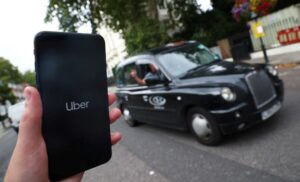However, as Ukrainians reclaim control of their nation, certain shadowy Russian cell phone businesses quickly disappear from the internet.
For the past six months, residents of occupied Ukrainian cities have endured the adverse effects of Russian occupation. Vladimir Putin’s soldiers have attempted to legitimise makeshift authorities across Ukraine’s south and east:
- Citizens in formerly occupied regions were given Russian passports.
- New referendums were announced to see those areas join the Russian Federation.
- Troops had attempted to seize internet control, potentially subjecting individuals to Moscow’s powerful censorship apparatus.
As part of the progress, in the past few months, two Russian mobile and internet companies have popped up in Ukraine, who say they provide cell phone coverage to “liberated territories.”
At the same time, according to specialists, Russian internet businesses in the Donbas’ separatist regions announced that they had expanded their mobile coverage. These are some of the newest attempts to turn chunks of Ukraine into Russian infrastructure and dominate them, much like Russia’s annexation of Crimea in 2014.
“All of this appears to be so obviously priming customers for taking away this idea that they are bringing connection and peace to these regions,” says Olena Lennon, a national security researcher at the University of New Haven. She has studied the new mobile companies. “Its language is highly propagandistic and manipulative,” she adds. She likens the actions to a form of “soft power.”
The new, unbranded SIM cards were discovered in occupied Ukraine for the first time by customers as early as June when 7Telecom and MirTelecom began advertising their services. Both firms utilize the +7 Russian phone code and have websites on Russian domains. They claim to offer service across Ukrainian towns and cities in Kherson, Melitopol, and Zaporizhzhia regions.
Some people have had their connectivity restored and can reconnect with loved ones and let them know they’re alive. On the other hand, Russian-linked mobile internet firms located in occupied areas appear to be deleting some of their web pages.
For example, until mid-September, MirTelecom included three maps claiming cell coverage in the Kherson region, Zaporizhzhya region, and Kharkiv region. However, once Ukrainian troops regained control of Kharkiv, that map was removed from the website.
The power to control the internet gives occupying forces the capacity to mould what individuals view, watch, and hear. Reports from regions of Ukraine where Russian troops have authority indicate that internet censorship is more strictly implemented than in Russia, where there have been extensive crackdowns on freedom of speech.

More Stories
Killnet and AnonymousSudan Collaborate to Launch Cyber Attacks on Western Organisations
In recent news, it has been reported that two Russia-sympathetic hacktivist groups, Killnet and AnonymousSudan, have allegedly launched a series...
$4000 Gone In An Instant: Mother Defrauded in Facebook Marketplace Car Deal
A mother of four is warning others to be cautious after believing she had purchased a safe and dependable car...
Shocking Scam: Sydney Family Loses $200K Life-Savings in Suncorp Spoofing Fraud
A family from Sydney has lost their life savings worth $200,000 due to a fraudulent scam. Peter and Madison, who...
Mysterious Money Transfer Leaves Couple Speechless: How They Got an Unsolicited $4000
A young couple in Melbourne claims their bank is making up a personal loan they do not understand. Ashley and...
Phishing + AI + Voice Cloning= Big Trouble: The New Way Criminals are Stealing Your Money
New Alert: Criminals use AI and voice cloning to trick you out of your money. Earlier this year, Microsoft unveiled...
‘Impossible to Spot’ Delivery Scam Email Targets Australia Post Customers – Don’t Fall Victim!
Unsuspecting shoppers should be cautious as a parcel delivery scam that is hard to distinguish targets Australia Post customers. Email...


